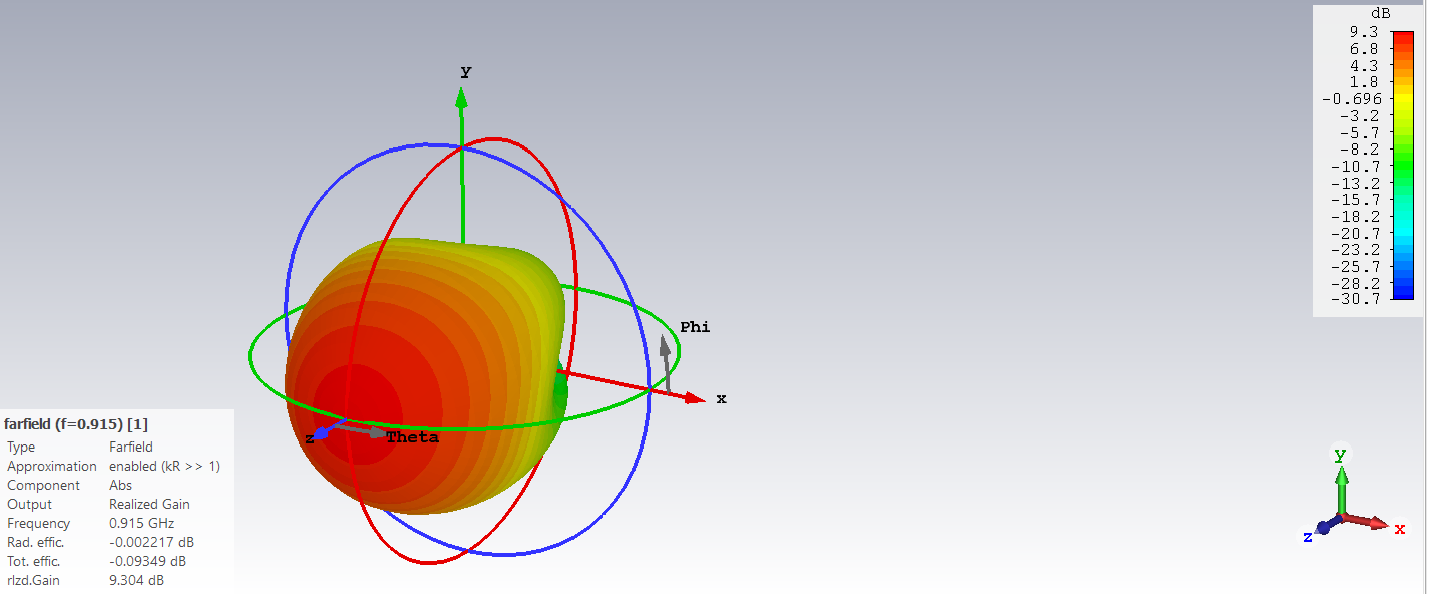"MS-915M-CPR-9" is an ultra-high-frequency (UHF) RFID Antenna that boasts a frequency range of 902-928 MHz which is considered the US standard.
The UHF frequency band generally covers the range from 300 MHz to 3 GHz.
RFID systems that operate in this frequency band are called Ultra High Frequency (UHF) RFID Systems.
In the US, the UHF RFID systems are allocated a frequency range of from 902 to 928 MHz, but in Europe, UHF RFID systems are assigned a frequency range of 865 to 868 MHz.
Our design is suitable for both and even other allocated ranges within 860-960 MHz but has the best performance in the US standard.
The read range of passive UHF systems can be as long as 12 m, and UHF RFID has a faster data transfer rate than LF or HF.
Antenna gain indicates the ability of the antenna to send or receive a signal more or less in a specified direction.
In a transmitting antenna, the gain describes how well the antenna converts input power into radio waves headed in a specified direction. In a receiving antenna, the gain describes how well the antenna converts radio waves arriving from a specified direction into electrical power.
“MS-915M-CPR -9” realized gain is 9.3dB.

S-parameters describe the input-output relationship between ports (or terminals) in an electrical system.
In practice, the most commonly quoted parameter in regards to antennas is S11.
S11 represents how much power is reflected from the antenna, and hence is known as the reflection coefficient.
If S11=0 dB, then all the power is reflected from the antenna and nothing is radiated. If S11=-10 dB, this implies that if 3 dB of power is delivered to the antenna, -7 dB is the reflected power.
the maximum acceptable value of S11 for an interconnect structure is about -13 dB: If S11 is smaller than -13 dB, we will not see the impact from these reflections on the transmitted signal.
“MS-915M-CPR -9” present a good s11 result as shown below.
while the signal travels from the transmitter to the receiver, circular polarization of an electromagnetic wave is a polarization state in which, at each point, the electromagnetic field of the wave has a constant magnitude and is rotating at a constant rate in a plane perpendicular to the direction of the wave.
"MS-915M-CPR -9" is a Right Hand Circular Polarization (RHCP).

"MS-915M-CPR-9" operates in a wide range of frequency and has a high gain compared to the microstrip structure.
"MS-915M-CPR-9" also has small dimensions that turn This microstrip antenna to an usefull antenna.